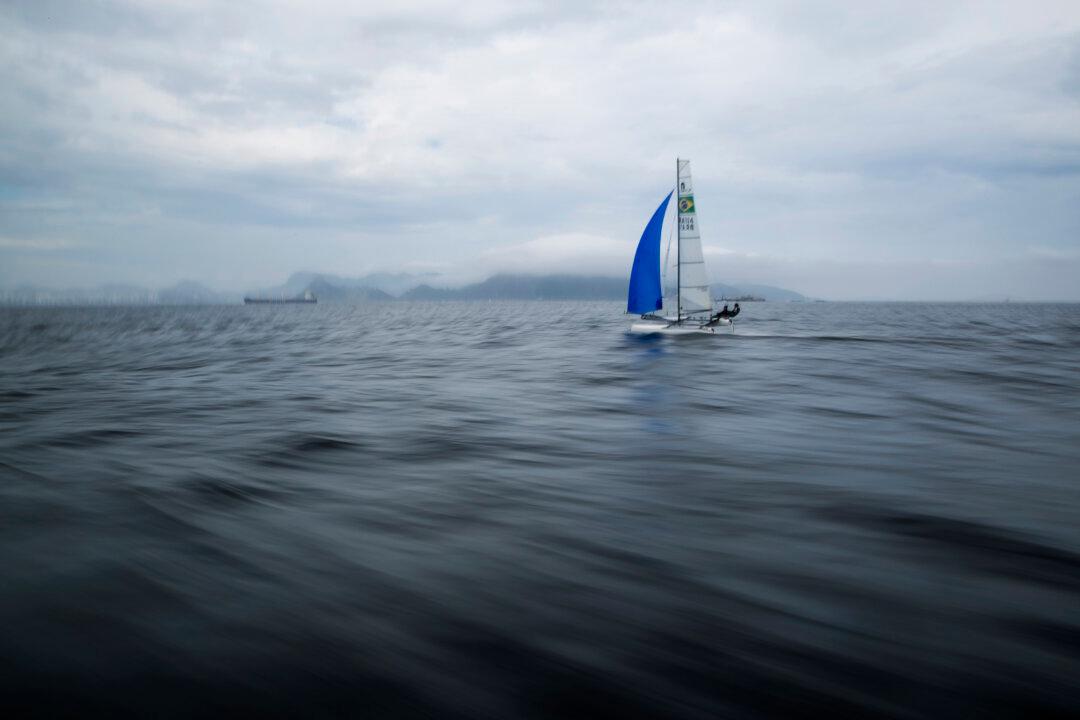RIO DE JANEIRO—The former CEO of World Sailing says he was fired for pushing to get rid of polluted Guanabara Bay as the sailing venue of the Olympics in Rio de Janeiro.
Peter Sowrey tried to change the venue, or at least have a “B plan” but says “I was told to gag myself on the subject.”

Andy Hunt at a press conference at Wembley Stadium in London on Oct. 20, 2011. Hunt replaced Peter Sowrey in January 2016 as the new CEO of World Sailing. Sowrey says he was fired for pushing to get rid of polluted Guanabara Bay as the sailing venue for this year's Rio de Janeiro Olympics. AP Photo/Sang Tan





